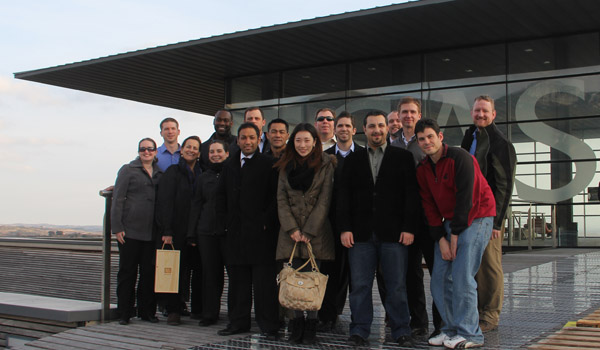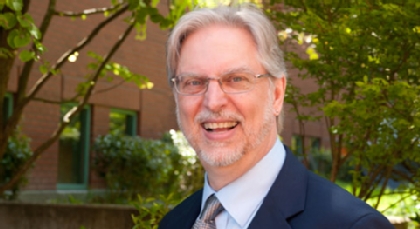Page 20 • (12,582 results in 0.037 seconds)
-
PLU introduces new Doctor of Education in educational leadership Learn More Apply Now Doctor of Education (Ed.D) in Educational LeadershipThe Doctor of Education (Ed.D) in Educational Leadership Program is designed to provide preparation and development to meet the needs of a variety of students currently in school leadership positions with a focus on preparation for advanced district leadership and professional development in one’s current school leadership position. The program is
Graduate AdmissionPacific Lutheran University 12180 Park Avenue South Tacoma, WA 98447-0003 -

April 1, 2013 The Value of an International Education Professor Matt Monnot took a group of MBA students to Spain in 2012. Both undergraduate and graduate business programs are built on the opportunity to study away By Barbara Clements Denise Petryk ’12 knew that an MBA would help her in the running of her veterinary practice, but she wanted a bit more. She found that in the PLU MBA program, with its strong international flavor in its curriculum. “To travel internationally is always a good
-
studies with an academic cognate field outside of music, such as psychology, religion, or mathematics. Bachelor of Music in Education — intended for those students wishing to be certified to teach music in the public schools. Bachelor of Arts in Music — intended for those students wishing to obtain a liberal arts degree in music. Music Minor — Intended for students who wish to increase their knowledge of academic and applied music without majoring in music.EnsemblesParticipation in musical ensembles
-

taught at Wichita State and the Associated Colleges of Central Kansas. His portfolio includes project coordination and research for the University of Kansas Institute for Research in Learning Disabilities. Kline has taught in elementary and junior high schools. Of note is Kline’s work in the Washington Association for Colleges of Teacher Education, where he has served for six years, two of those as president. He is an expert on professional education in the state and has testified on various
-
development and initiation of safety and quality initiatives within a micro-system or entire system. Collaborate in the inter-professional design, management, and coordination of safe, quality care. Pursue practice excellence, lifelong learning, and professional engagement. Demonstrate knowledge of how healthcare policy, including financial and regulatory, affect the improvement of healthcare delivery and/or health outcomes. Demonstrate the use of information systems, patient care technologies, and inter
-
Learning Outcomes for the Gender, Sexuality and Race Studies MajorStudents who take Gender, Sexuality, and Race Studies courses at PLU will learn how to: Understand the social construction of gender, sexuality, and race. Analyze systems of privilege and oppression. Assess the intersectional relationship between knowledge production, identities, and power. Communicate and collaborate across differences. Practice community-engaged scholarship and coalition building. Engage in critical imagining
-
Political Science Learning ObjectivesRevised 12/18/18 Learning Objectives100 Level200 Level300 Level400 Level Substantive knowledge in the Discipline.Define and describe the basic political processes and institutions of government including definitions of politics.Apply the central concepts to the role of various actors including citizens, interest groups, political parties, and politicians within political systems.Apply the central theories and concepts in independent research.Convey
-
Biology Department Learning Outcomes Students will demonstrate an understanding of the following key biological concepts. Diversity of life evolved from a common ancestor over time by processes of mutation, selection, and genetic change. Structure and function are related at all levels of organization. The growth and behavior of organisms are regulated through the expression of genetic information in context. Biological systems are governed by the laws of thermodynamics and chemical
-
History Learning OutcomesAll history majors must develop a breadth of historical knowledge that represents awareness of the diversity of world civilizations. This is now assessed through the requirement that students take at least one class in each of three geographic areas (non-west, European, and U.S.). Our new requirements are thematically structured and the revised outcome will address the importance of having students learn to compare and connect historical inquiries that reflect a range
-
International Honors Program Learning OutcomesWhat follows are two different ways of expressing the same International Honors Program Learning Outcomes: the first version is aimed at students beginning their studies; the second version is expressed in terms professors tend to use. International Honors Program Learning Outcomes: From the Student’s Perspective Learn how different disciplines approach the same problems, and then put their methods together to get new, bigger perspective on those
Do you have any feedback for us? If so, feel free to use our Feedback Form.


